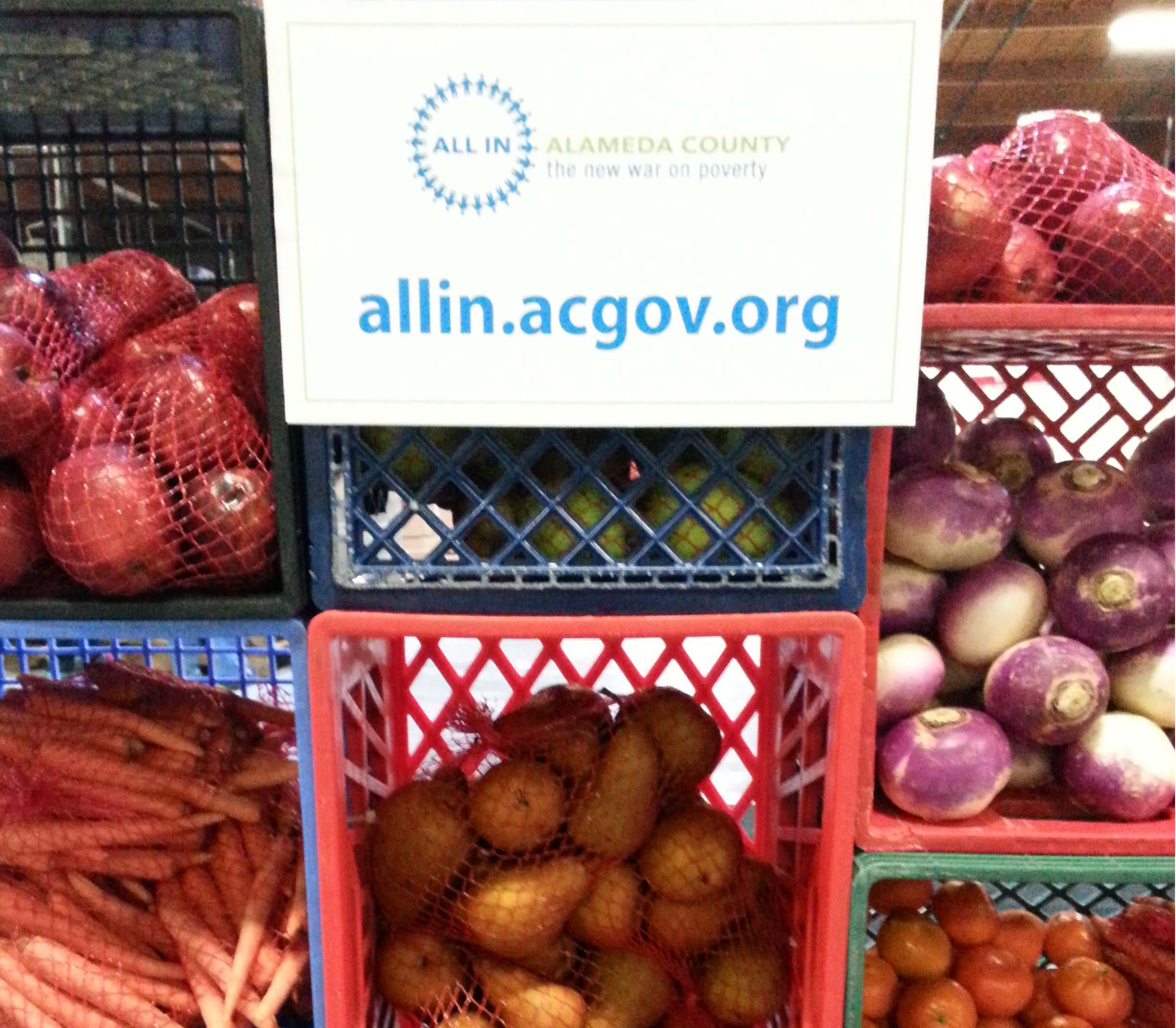Policy Work
On Medically Supportive Food and Nutrition Services
What we do
ALL IN’s Recipe4Health initiative is an integrative model for healthcare that addresses the social determinants of health (specifically food insecurity and social isolation) and chronic disease with a racial and health equity lens. In partnership with Alameda County’s local, public managed care plan, Alameda Alliance for Health, ALL IN is working to identify sustainable funding mechanisms and recommend policy changes to make food prescriptions, other medically supportive food interventions, and nutrition services paid for by Medi-Cal just like other medications and medical treatments.
policy work on medically supportive food and nutrition services

Click here to learn more about California Advancing and Innovating Medi-Cal (CalAIM)
Click here to learn more about the Medically Supportive Food and Nutrition Steering Committee
Download The Case for Medically Supportive Food and Nutrition Infographic
Download the Medically Supportive Food and Nutrition Steering Committee Position Paper
ALL IN is pursuing two interrelated policy pathways to make medically supportive food and nutrition services a covered benefit at the state-level:
1) Administrative policy through the State of California’s proposed CalAIM (California Advancing and Innovating Medi-Cal) Waiver to the Centers for Medicare and Medicaid Services.
Alameda County is part of the statewide Medically Supportive Food and Nutrition steering committee, which brought together over 100 organizations to sign a position paper to support inclusion of “Medically Supportive Foods and Nutrition Services” into California’s Medi-Cal waiver. In early 2021, the Department of Healthcare Services included this in the CalAIM optional services initiative, which will allow health plans to offer medically supportive food and medically tailored meals to its members.
2) Legislative policy through Assembly Bill 368 Food Prescriptions (Reyes/Bonta) and the 2021 California State Budget Act
Assembly member Rob Bonta introduced legislation, Assembly Bill 368, to address racial and ethnic health disparities by establishing Food Prescription pilot programs in three counties, including Alameda County, to provide Food Prescriptions to Medi-Cal Managed Care members who are food insecure and have diet-related, chronic health conditions. Assembly Majority Leader Eloise Gomez Reyes became the lead author when Bonta became the Attorney General. If enacted, the California Department of Health Care Services would implement and evaluate the pilot in partnership with managed care plans to build the evidence base demonstrating how food prescriptions can manage, prevent, and reverse chronic conditions, reduce food and nutrition insecurity, and eliminate racial health disparities at the end of the two-year pilot. While ABA368 was held in the Appropriations Committee and efforts to include funding in the state budget legislation were not successful, the inclusion of medically supportive food and nutrition in CalAIM is a major step forward in using healthy food as an effective medical intervention. A broad coalition of more than 50 organizations, including health plans, health equity groups, food security providers and advocates came together to support the legislation and budget request.
Learn more about ALL IN’s Recipe4health Initiative
Click here to learn more about Recipe4Health.
Click to contact us: Steven Chen
